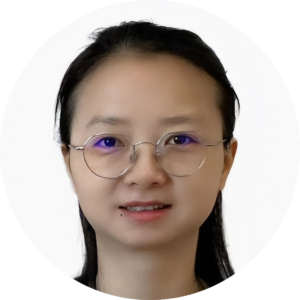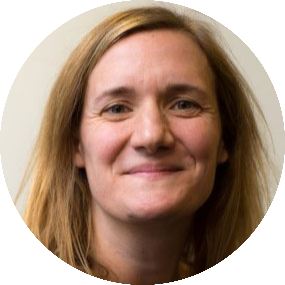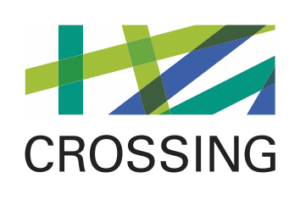The registration is available!
Join us for the fifth annual High-Tech Women Event (HTW’25) on September 4, 2025, in Darmstadt, Germany. This dynamic event provides a unique platform for accomplished women worldwide in technology and science to share their professional experiences and groundbreaking ideas. Our event focuses on mentoring young female talents and enhancing their opportunities through engaging discussions and presentations with established female leaders in science and technology. While the emphasis is on women in tech, particularly cybersecurity and privacy, the event also features expert speakers from other disciplines. Open to everyone, HTW’25 is dedicated to promoting inclusivity and collaboration across the tech community.
Don’t miss this opportunity to connect with, learn from, and be inspired by the female experts shaping the future of technology and science.
AGENDA
From 08:30- 09:30
Registration
Welcome Hotel Lobby, Darmstadt, Germany
09:30- 09:40
GREETINGS
Prof. Ahmad-Reza Sadeghi – Technical University Darmstadt
Prof. Lejla Batina – Radboud University
Prof. Nele Mentens -Leiden University and KU Leuven
Dr.sc. Elissa Mollakuqe – Technical University Darmstadt
Dr. Huimin Li – Technical University Darmstadt
09:40-10:150
Anna Hakkers – PhD -Leader in Data & AI Security
Cohesive data security as a foundation for resilience
10:15-10:50
Maria Mendez Real – Professor at the University of South Brittany
The constant battle between performance and security
10:50-11:20
Coffee Break
Anita Aghaie – Security Key Expert at Siemens AG
11:55-12:30
Elif Yesilbek – Cryptographer at CISO, ABN AMRO Bank N.V.
Post-Quantum Cryptography: Quantum Impact on Cryptography, Current State with the Standards and Crypto-Agility
12:30-13:45
Lunch
13:45 – 14:25
Yunwen Liu – Decentralized systems, Cryptography
Security and Privacy Challenges in Decentralized Ecosystems
14:25 – 15:05
Aljona Reiser, Head of Cyber Business Risk at Commerzbank AG
Digital Fortress: Tackling the Challenges of Modern Cybersecurity with ‘Security by Design’ and Effective Risk Management
15:05 – 15:45
Dr. Linda Di Geronimo, Head of Technical Cooperation and Strategy (R & D) at the Huawei Zurich Research Center
From Academia to Industry to In-between? A Journey of Choices, Transitions, and Discovery
15:45 – 16:15
Coffe Break
16:15 – 17:30
PANEL DISCUSSION – Student, PhD, Postdoc
Konstantina Miteloudi, Radboud University, Netherlands
Azade Rezaeezade, Delft University of Technology, Netherlands
Durba Chatterjee, Postdoctoral researcher, Digital Security Group at Radboud University
Didem Duamn, Electrical and Electronics Engineering at the Istanbul University – Cerrahpasa.
Rafieh Mosaheb, Postdoctoral researcher, University of Luxembourg (Université de Luxembourg)
List of Confirmed Speakers
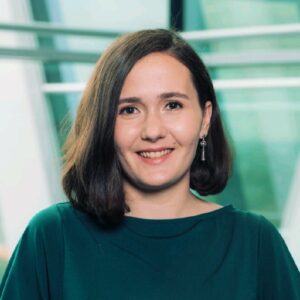
This talk challenges the traditional, fragmented approach to data security, using the healthcare industry as a lens. Instead of dispersing security functions across disconnected tools and teams, we’ll make the case for a cohesive data security layer, one that places sensitive data at the center of protection strategies. Drawing on real-world developments in European healthcare, we’ll uncover common gaps, examine emerging best practices, and show how this shift can dramatically improve security posture in high-risk, data-intensive environments.
Bio: Anna is a cybersecurity expert with background in privacy-preserving cryptographic protocols. Her focus is development of comprehensive data security strategies for multi-national organizations. With experience at Philips and EY, she ensures security frameworks remain resilient and adaptable by aligning governance, technical realities, and business needs.
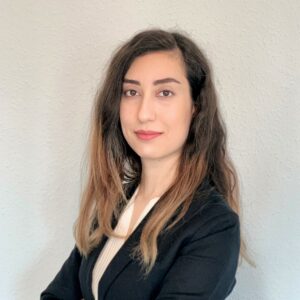
Integrating artificial intelligence and embedded systems into supply chains has significantly enhanced efficiency, scalability, and decision-making processes while simultaneously introducing complex security challenges. This presentation examines interdisciplinary approaches to securing AI-based systems in industry deployment, emphasizing the integration of cryptographic solutions and robust AI techniques. Particular attention will be given to safeguarding the integrity and authenticity of system components, protecting AI systems including LLMs against adversarial attacks, and addressing emerging threats. This discussion will outline the bottlenecks in securing AI systems throughout their life cycles in light of upcoming global regulations and standardizations.
Anita Aghaie is a Security Key Expert at Siemens AG in foundation technology group, working on embedded systems security, AI security, secure ML, and PQC. She bridges research and practice with the real use cases across funded research projects and customer projects; recent work includes cryptographic solutions, model attack/defense methods, evaluation frameworks, and secure AI deployments. She contributes to standards through CEN-CENELEC JTC 21, DIN, and ETSI on AI security. Anita holds a PhD in IT Security from Ruhr University Bochum (Germany) and an M.S. in Computer Engineering from Rochester Institute Technology (USA). She has published in the field and serves on TPCs of various conferences and journals, e.g., CHES, DATE, and CiC.
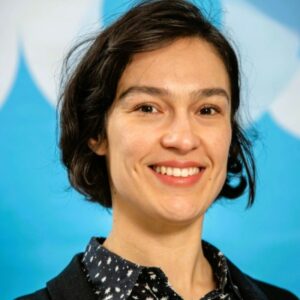
This presentation will focus on the security vulnerabilities of processors at the micro-architecture level. In particular, side-channel information during the execution of sensitive applications such as cryptographic functions could reveal secret data and cryptographic keys. There are various ways of accessing this information. Motivated by performance and power consumption optimization, resource sharing between applications such as memory caches, or even sensors directly integrated into today’s systems-on-chip exacerbate these vulnerabilities and greatly facilitate side-channel attacks. In this talk, we advocate a security-oriented processor design.
Bio: Maria Méndez Real holds a PhD in computer science and electronics. She has over 10 years’ experience in the field of hardware security. She is particularly interested in processor security, adaptive security mechanisms against side-channel attacks and fault injection, security enclaves and the security of autonomous embedded systems. She currently holds a Professorship chair at the Université Bretagne Sud, Lorient, France, on the security and autonomy of maritime drone swarms within the Lab-STICC laboratory.
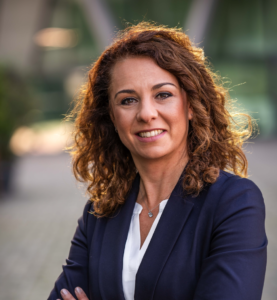
The growing digitalization presents challenging demands on cybersecurity, making it clear that technical solutions alone are not enough; precise and well-considered processes are essential. A key approach is the principle of ‘Security by Design.’ Security architectures must be planned right from the design stage to effectively combat fraud and provide comprehensive protection against cybercrime, particularly in the realm of digital banking. Equally critical is the accurate assessment of cyber risks, empowering companies to make informed decisions about their security strategies and develop robust and comprehensive security concepts. These approaches integrate technological advancements with organizational strategies, offering a holistic view of digital security.
Bio: With over 13 years of experience in the finance and cybersecurity industry, Aljona Reiser is a seasoned expert and brings extensive experience in leading security and risk management strategies. The trained mathematician is currently working as Head of Cyber Business Risk at Commerzbank AG, where she is responsible for internal customer security consulting, fraud prevention in digital banking, and the bank’s cyber risk management. With her talent for business and IT, as well as an analytical mindset, Aljona can look back on a long track record of success in various leadership roles, where she oversaw complex IT and trading systems.
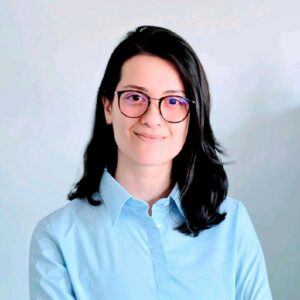
This talk will introduce how developments in quantum computing affected cryptography, post-quantum cryptography and cryptographic-agility.
Bio:Elif studied Mathematics and Software Engineering in Turkey. She completed her Computer Science masters in Information Security in Eindhoven University of Technology in the Netherlands with focus on Cryptography. Right now she is working as a Cryptographer.
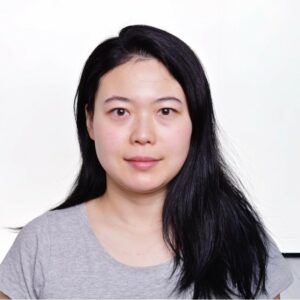
This talk examines three critical areas of concern: the centralization of Ethereum block building, which threatens censorship resistance and protocol neutrality; persistent smart contract vulnerabilities that continue to cause substantial financial losses; and the security and privacy implications of interoperability across Layer 2 solutions, where cross-chain communication introduces new attack vectors. We highlight the urgent need to build secure and privacy-preserving protocols for decentralized infrastructure.
Yunwen Liu is an assistant professor at COSIC, KU Leuven, Belgium. Her research is mainly on blockchain technology, with a particular emphasis on designing privacy-preserving protocols aimed at mitigating attacks and centralization risks in decentralized ecosystems. She also develops machine-aided tools for analyzing cryptosystems and blockchains.

Between research and industry there’s a quiet in between where careers often take shape.This talk is a first person story of moving from a CS PhD into industry and then discovering that middle ground. I share a few scenes, the issues I ran into, the myths I had to drop, and the lessons I keep. I also address common assumptions about “leaving” academia and show why diplomacy and the academic language often matter more than job title.
Bio: She leads strategic partnerships with Swiss universities, research institutes, and startups. She shapes the company’s innovation agenda through cross-sector collaboration and ecosystem development. With a background in computer science and HCI, she previously held research roles at ETH Zurich and the University of Zurich. Her work bridges academic insight and industrial impact to drive tech advancement.
Student, PhD, Postdoc Panel
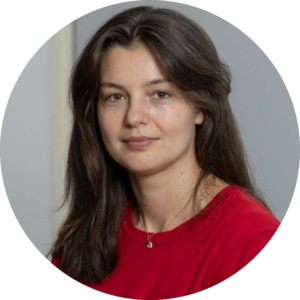
Konstantina Miteloudi is a PhD candidate in FPGA security at Radboud University in The Netherlands, under the supervision of professors Lejla Batina and Nele Mentens. She holds a Diploma and an MSc in Electronic and Computer Engineering with a focus on hardware engineering, and another MSc in Operational Research, all obtained from the Technical University of Crete in Greece. Her research focuses mainly on hardware design of cryptographic algorithms and countermeasures, side-channel leakage assessment, and the use of FPGAs in cryptanalysis.
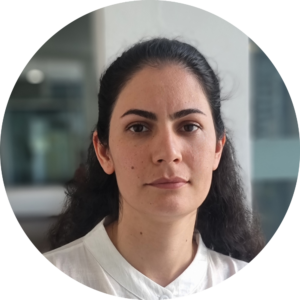
Azade Rezaeezade is a PhD candidate in the cybersecurity research group at Delft University of Technology, under the supervision of Dr. Stjepan Picek. She holds a BSc in Computer Engineering and an MSc in Artificial Intelligence. Her research focuses on the intersection of cybersecurity and deep learning, with a particular emphasis on IoT and cyber-physical systems security. Currently, Azade is investigating side-channel analysis of symmetric and asymmetric cryptographic implementations, focusing on AES, Ascon, and Kyber.
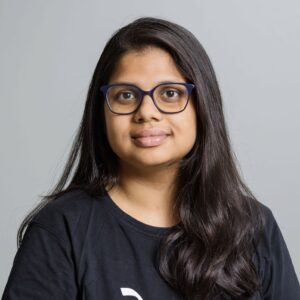
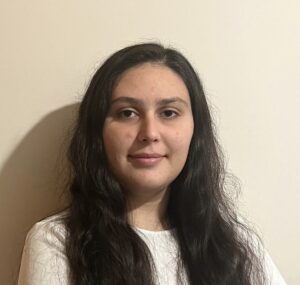
Didem is currently a 4th year undergraduate student in Electrical and Electronics Engineering at the Istanbul University – Cerrahpasa. She is also pursuing a minor in Computer Engineering at the same university. She is performing her internship in Prof. Dr. Nima TaheriNejad’s Lab and during her internship, she is focusing on Digital Circuit Design and Programming FPGAs for Biologically Plausible Artificial Intelligence.
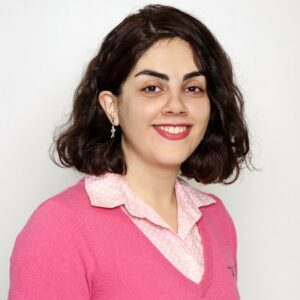
I recently completed my PhD, where my research focused on the design and analysis of post-quantum electronic voting schemes. My academic journey has been rooted in a strong interest in mathematics, programming, and applied cryptography, with a particular appreciation for clarity, precision, and rigor in both research and teaching. My current research interests lie in post-quantum cryptography, with a focus on developing and analyzing secure protocols that can withstand quantum adversaries. While I continue to deepen my expertise in this evolving field, I remain equally committed to high-quality teaching and meaningful academic collaboration.
Time and Venue
Date:
4 September, 2025
Location:
– Welcome Hotel Darmstadt –
Organizers

Organizer


